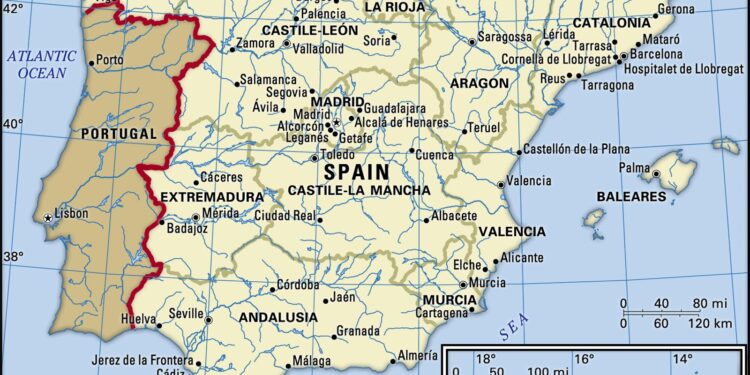In a notable development in international relations, Spain has recently approved eight new measures aimed at addressing the ongoing Israeli-Palestinian conflict, while simultaneously deferring a proposed arms embargo against Israel. These actions reflect a growing concern among European nations regarding the humanitarian situation in the region and highlight Spain’s willingness to take a more proactive stance. The decision comes amid increasing pressure on European governments to reevaluate their military support for Israel in light of escalating violence and civilian casualties. As Madrid navigates the complex geopolitical landscape, the implications of these measures could resonate far beyond its borders, potentially reshaping diplomatic ties and responses within the European Union.
Spain’s Strategic Shift: Eight Measures Against Israel Amid Ongoing Conflict
In a bold move, Spain’s government has unveiled a comprehensive package aimed at addressing the ongoing conflict in Israel, signaling a significant shift in its diplomatic stance. The new measures include the following initiatives:
- Condemnation of Violence: A strong public statement condemning violence against civilians on both sides.
- Humanitarian Aid: Increased humanitarian assistance for Palestinian communities affected by the conflict.
- Support for Diplomatic Initiatives: Advocacy for a renewed peace process facilitated by international actors.
- Public Awareness Campaigns: Initiatives to raise awareness about the humanitarian crisis in the region.
- Trade Restrictions: Consideration of trade restrictions on goods produced in Israeli settlements.
- Engagement with NGOs: Collaboration with non-governmental organizations to provide support for affected populations.
- Monitoring of Arms Sales: Enhanced scrutiny of arms sales to Israel, despite the delay of an embargo.
- Calls for International Accountability: Seeking accountability for actions that contravene international laws.
The Spanish government’s decision reflects a growing concern over the escalation of violence and its ramifications for peace in the region. By focusing on humanitarian efforts and international cooperation, Spain aims to foster a climate conducive to dialogue while balancing its strategic interests within the European Union. As the situation evolves, these measures might redefine Spain’s role on the global stage, particularly within the context of Middle Eastern diplomacy.
Understanding the Implications of Spain’s Arms Embargo Delay on EU Foreign Policy
The recent decision by Spain to delay its arms embargo against Israel while approving a set of measures highlighting human rights concerns raises complex questions regarding the overall direction of EU foreign policy. This delay not only showcases Spain’s position within the EU’s consensus framework but also reflects the tensions among member states regarding their relationships with Israel and Palestine. The implications of this stance may ripple through EU diplomatic relations, potentially straining ties with countries that are critical of Israel’s actions while simultaneously causing friction within the EU itself as member states grapple with differing interpretations of human rights and military support.
Furthermore, the delay could undermine the EU’s credibility as a peacemaker in the region. Key considerations that arise from this development include:
- Internal Division: How differing views among member states will affect the EU’s unified foreign policy approach.
- Human Rights Visibility: The emphasis on human rights that Spain promotes could enhance scrutiny of EU arms sales.
- Geopolitical Ramifications: The balance of support between Israel and Palestine and its effect on regional stability.
Given these factors, it becomes evident that Spain’s actions may catalyze a larger discussion within the EU about its principles and practices regarding arms sales and international relations.
Recommendations for European Unity: Navigating Tensions Between Israel and Palestine
As tensions between Israel and Palestine simmer, European nations must adopt a multifaceted approach to promote stability and cooperation in the region. Several strategic measures could enhance diplomatic efforts while addressing humanitarian concerns. These could include:
- Facilitating Dialogue: Establishing regular roundtable discussions involving key stakeholders from both sides, mediated by neutral European representatives.
- Supporting Humanitarian Aid: Increasing funding for humanitarian initiatives that prioritize health and education in affected areas, aiming to alleviate suffering and foster goodwill.
- Strengthening Trade Relations: Encouraging economic partnerships that promote interdependence, which can incentivize peaceful negotiations.
- Promoting Cultural Exchange: Initiating cultural programs that highlight shared histories and experiences, helping to dissolve stereotypes and build mutual respect.
Moreover, it is crucial for European nations to present a unified stance on military engagements and arms agreements. One potential strategy could be the implementation of a transparent embargo system, especially when conflicts escalate. An illustrative table might outline proposed policy frameworks:
| Policy Framework | Priority Actions | Expected Outcomes |
|---|---|---|
| Comprehensive Arms Embargo | Assess current arms dealings, halt shipments during conflicts | Reduction in violence escalation |
| Enhanced Diplomatic Engagement | Regular EU-Israel-Palestinian meetings | Improved dialogue and trust-building |
| Joint Economic Development Projects | Launch initiatives benefiting both Israeli and Palestinian communities | Increased collaboration and economic stability |
To Conclude
In conclusion, Spain’s decision to approve eight measures aimed at holding Israel accountable for its actions, while simultaneously delaying the implementation of an arms embargo, signals a complex stance in the shifting dynamics of international relations. As tensions in the region persist and the humanitarian situation escalates, Spain’s approach reflects a delicate balancing act between diplomatic engagement and human rights advocacy. Observers will be keen to see how these measures impact Spain’s relationship with both Israel and the broader international community, as well as the potential ramifications for future policy decisions. As the situation continues to evolve, the eyes of the world remain fixed on the developments that will shape the trajectory of peace and security in the region.














